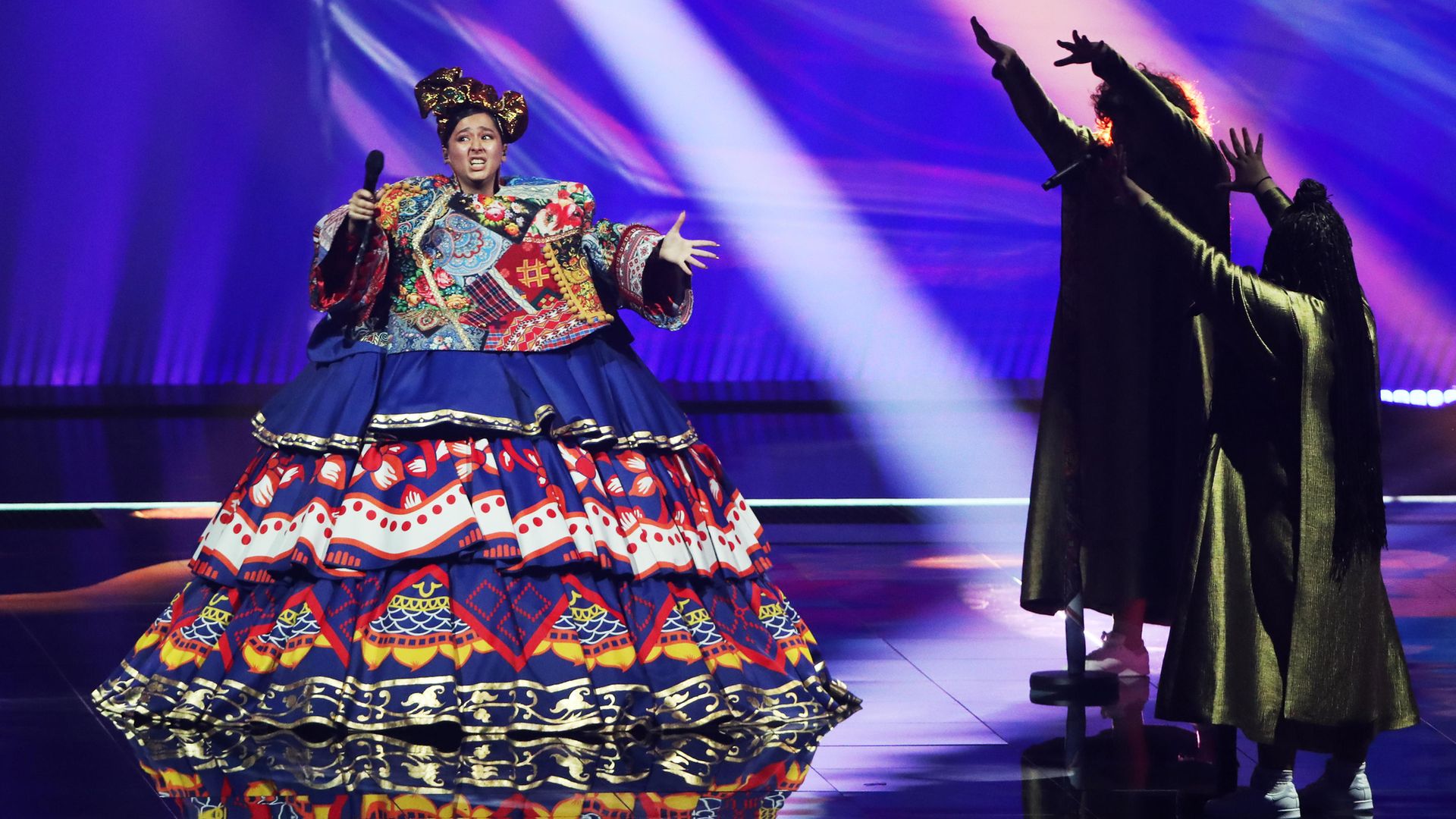
The song contest is just first of a series of events that highlight the tension between a desire to open up societies and the need to remain vigilant against the virus
Never far from scandal, one of the greatest controversy’s surrounding this year’s Eurovision Song Contest is the fact that it is being held at all.
In the Netherlands, where the event is taking place, Covid case numbers remain high and vaccination coverage relatively low, and the contest has become a symbol of the tension – familiar in other countries – between a desire to reopen society, and the need to remain vigilant against a still deadly virus.
There has been sporadic criticism of the event going ahead and tight restrictions are in place. Participants must quarantine, and only 3,500 will be allowed to attend the live semi-finals and final.
The contest is only allowed to have an audience at all because it has been included in a highly controversial initiative called Fieldlab, which the Dutch government has set up in cooperation of the events industry.
Fieldlab, which involves strict protocols, has been primarily lambasted for the cost, estimated at more than 1bn euros, that critics say can be better spent elsewhere.
Some are wary of the scientific underpinnings, however, while others, including some of the government’s own advisers, question whether as long as new cases still hover around 30 per 100,000, and just 30% of the population has received a first jab, such events should have any audiences, or go ahead at all.
Such concerns reared their head again over the weekend as members of the Polish and Icelandic delegations tested positive for Covid, despite the quarantine and testing measures. They had to miss Monday’s opening ceremony, along with the contestants from Romania and Malta who had stayed at the same hotel.
The challenges facing the Dutch organisers – and the debate surrounding the event – are likely to be repeated elsewhere around the globe, as countries takes their first tentative steps to open up once more, and hold major gatherings.
The contest is the first of three international events due to take place over the next two months, and all postponed last year by the pandemic, that will provoke controversy. After Eurovision comes Euro 2020, which kicks off next month, and the Tokyo Olympics, which follow in July.
For the European championships – which is being hosted in several European cities – 12,000 people will be permitted to attend matches played in Amsterdam, although that could still change depending on the way the pandemic develops. Other venues, such as Budapest, might allow full capacity crowd, while authorities in Munich have said they have made no promises on fan numbers.
Dublin was dropped altogether as one of the tournament hosts after the Irish government couldn’t guarantee minimum attendance levels due to the ongoing pandemic. And in Spain Bilbao bowed out, with its matches being picked up by Seville.
Fans will face quarantines in some countries, or may not be able to attend at all, if travel restrictions have not been lifted, and they will be allocated time slots to arrive at the stadiums.
The situation surrounding the Olympics seems even more fraught. A petition in Japan to cancel the games altogether has gathered more than 350,000 signatures and there is speculation that a pledge to do just that could be part of the Tokyo governor’s platform for assembly elections that are to be held in July.
But the opposition to the Olympics is not just centred on Tokyo, a recent poll found some 80% of all Japanese preferring to cancel the games. Even prime minister Yoshihide Suga, until recently adamant that the event will take place, has started to backtrack slightly, saying he will, “not put the Olympic first”.
While doing relatively well during the pandemic, several Japanese prefectures still face emergency measures and the government has been criticised for a slow vaccine rollout.
The £11.5 billion Games are certainly on a different scale to Eurovision and involve not only constructing a new stadium and facilities but also huge sums in sponsorship and television rights. The tricky part for Tokyo is that only the International Olympic Committee has the right to cancel the Games. If the city acts alone, it could be saddled with the bill.
Measured against this Eurovision is a simple affair, but no less capable of provoking fierce passions and arguments. Older fans were left furious over the Dutch Fieldlab rule banning those aged over 70 from its events, thus blocking the country’s most vaccinated cohort from the contest.
Like the rest of the continent, they will simply have to settle for watching Europe’s annual celebration of the kitsch on television.
What do you think? Have your say on this and more by emailing letters@theneweuropean.co.uk
Warning: Illegal string offset 'link_id' in /mnt/storage/stage/www/wp-includes/bookmark.php on line 357
Notice: Trying to get property 'link_id' of non-object in /mnt/storage/stage/www/wp-includes/bookmark.php on line 37






